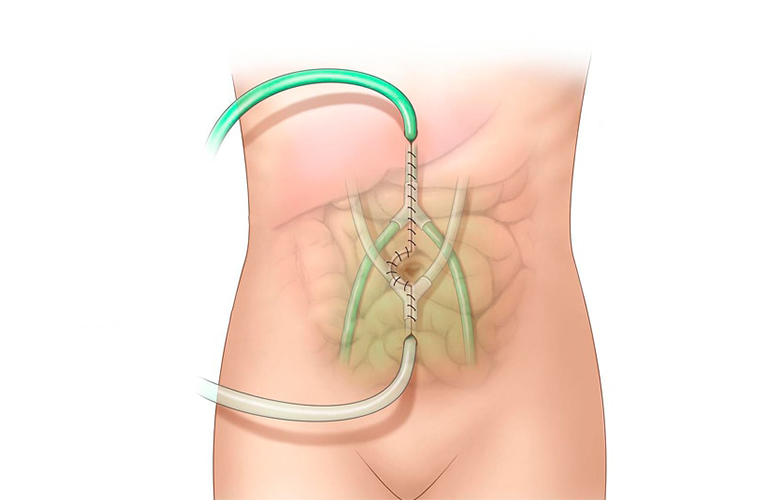
HIPEC
Oncological SurgeryIn some cancers arising from intra-abdominal organs, systemic chemotherapy given intravenously before (neoadjuvant therapy) or after (adjuvant treatment) or both before and after surgical treatment may not always give the expected response.
HIPEC; (Hyperthermic intra-abdominal chemotherapy - Hot intra-abdominal chemotherapy) is a form of treatment abbreviated as "Hyperthermic Intraperitoneal Chemotherapy". The application of intra-abdominal hot chemotherapy, called HIPEC, is one of the most important steps taken in this field in terms of both extending the life of the patient and improving the quality of life.
In patients with peritoneal involvement in the advanced stages of cancer, fluid (ascites) begins to accumulate in the abdomen. This fluid may cause the patient's abdomen to gradually swell, causing breathing and circulation problems due to the pressure and tension it creates.
Sometimes it becomes so common that it even interferes with the patient's lying position. In addition, it causes cancer cells to spread to other areas within the abdomen. Although it is possible to drain the fluid through the cannula to provide relief to the patient, fluid collection will occur again as the pathology continues.
In a similar group of patients with advanced cancer, HIPEC treatment that will prolong the patient's life and provide life comfort may be on the agenda.
Successful results have been reported with this procedure in cancers such as peritoneal cancer, appendix cancer and ovarian cancer in women. In addition, it can also be used in colon, stomach and recently pancreatic cancers.
Treatment is usually completed with cytoreductive surgery+peritonectomy+HIPEC followed by systemic chemotherapy. Cytoreductive surgery aims to remove tumors from all removable areas in the patient's abdomen and remove the abdominal membrane called peritoneum.
The abdomen is then washed with heated chemotherapy drugs for a while. HIPEC application alone can be applied only for "palliation", that is, to reduce the complaints to some extent, in patients with ascites who are not suitable for cytoreductive surgery due to their general condition and disease.
This procedure, which has no effect on survival time, can be performed laparoscopically through catheters placed in the abdomen.